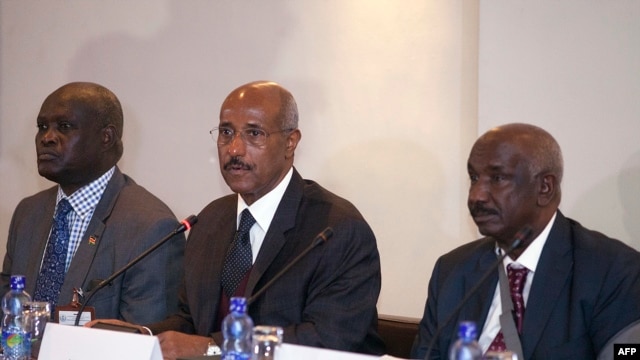NAIROBI, Kenya — Even as South Sudan’s president, Salva Kiir, and his longtime rival, the rebel leader Riek Machar, met here at the behest of Kenya’s president to end South Sudan’s civil war, Mr. Machar’s forces captured the strategic city of Malakal.
“My two brothers held five hours of face-to-face talks last night, which is important to build confidence and trust between them, in order to cement a viable path of peace,” the Kenyan president, Uhuru Kenyatta, said in a statement.
The talks have yet to produce a breakthrough, though “progress is being made,” according to Mabior Garang, a spokesman for the rebels. Mr. Garang also confirmed that on Saturday evening, rebel forces seized control of Malakal, an important oil center and the capital of Unity State. Malakal has changed hands several times during the conflict.
A South Sudanese military spokesman, Philip Aguer, could not be reached for comment.
A civil war has been raging in South Sudan since fighting erupted in December 2013 between forces loyal to Mr. Kiir and rebels allied with Mr. Machar, his former vice president. Tens of thousands of people are believed to have been killed in the fighting, and about two million have been displaced.
The Inter-Governmental Authority on Development, which is made up of East African countries and has served as a mediator in talks at Addis Ababa, Ethiopia, last week put forward a new “compromise” proposal to move the talks forward. The proposal involves security and power-sharing arrangements.
As part of Mr. Kenyatta’s peacemaking efforts, a group of former political detainees who had gone into exile in Kenya have returned to Juba and been reintegrated into the ruling party, including Pagan Amum, who was reinstated as secretary general
On Wednesday, the United States put forward a proposal at the United Nations Security Council that called for sanctions against six top military leaders from the warring parties, three from each side.


